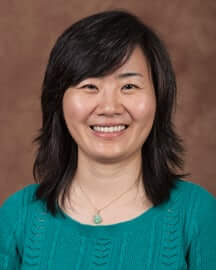Foster Integrative Learning with Renewable Assignments

Baiyun Chen, Ph.D.
Senior Instructional Designer, Center for Distributed Learning
Baiyun leads the Personalized Adaptive Learning team, designs and delivers faculty professional development programs, and teaches graduate courses on Instructional Systems Design. Her team works in close collaboration with teaching faculty members to design and develop adaptive learning courses by utilizing digital courseware to personalize instruction that maximizes student learning.
What is a renewable assignment?
A renewable assignment is an assignment where students compile and openly publish so that the assignment outcome is inherently valuable to the community after the class is over (Veletsianos, 2017). Different from a traditional disposable assignment, it has a longer shelf-life than one or two semesters. Renewable assignments can be scaled to both graduate and undergraduate students across disciplines and take various forms.
One form that renewable assignments might take is in the form of open access books that faculty and students collaboratively wrote, revised, or edited (Example One) or open educational resources (Example Three) that students created. Such assignments can also lead to secondary learning resources designed to improve the understanding of current and/or future students within one class (Example Two).
Why is a renewable assignment beneficial to students?
Renewable assignments promote integrative learning by enabling students to intentionally develop and adapt skills to new problem-solving contexts outside of the confines of an academic course (AAC&U, 2018). The benefits of completing a renewable assignment include the following:
- Students apply knowledge not just within the confines of an academic course. Students are engaged in intentional learning where they consider project goals, the audience, and the personal outcomes for their completion of the assignments.
- They collaborate with various stakeholders. Renewable assignments are high-impact practices which typically require meaningful interactions with faculty, other students, and stakeholders from the community (NSSE, 2018). Students collaborate with diverse others, and receive frequent and substantive feedback from various stakeholders.
- Students publish their work. Different from a regular class assignments, students find it rewarding to see their work being published and can see the potential value of the assignment beyond the class.
Links to Example Assignments
Example One:
This is an open book coming out of an undergraduate course project in the Introduction to Environmental Science class at the Ohio State University: https://ohiostate.pressbooks.pub/sciencebites/ . The book is now openly available for the community to use on the Pressbooks site under the Creative Common License.
“This book was written by undergraduate students at The Ohio State University (OSU) who were enrolled in the class Introduction to Environmental Science. The chapters describe some of Earth’s major environmental challenges and discuss ways that humans are using cutting-edge science and engineering to provide sustainable solutions to these problems.” (Clark, K, Shaul, T., Lower, B. H.)
Example Two:
Dr. Ronald DeMara from the University of Central Florida has a Vlogger assignment in his EEL3801 Computer Organization course where undergraduate engineering students created short online videos reflecting on course topics for others as supplementary learning materials. Below is one student-created video that the instructor has later integrated as part of his supplementary course materials:
The instructor and teaching assistants were encouraged by the student responses to this creative, yet structured approach for increasing engagement in exam preparation. As an outcome of this renewable assignment, the instructor was able to include the learner-created videos for use in future semesters of the course with students’ permission. Additionally, the vlogging undergraduates obtained a discussion-inspiring item to mention on resumes as a creative derivative work, and they appreciated the opportunity to express their creativity and responded by creating visually appealing interactive assignments (DeMara, Salehi, & Muttineni, 2016).
Example Three:
In Dr. Baiyun Chen’s EME6613 Instructional Systems Design at the University of Central Florida (UCF), graduate students designed free open educational resources for adult education. The instructional materials students designed and developed support adult learners with low math and literacy skills seeking to acquire new knowledge and skills to pursue their life goals and career aspirations. Students selected the topic of the contextualized instruction they would like to design, designed the instruction in a group, and exported the instructional module to the Canvas Community as an open educational resource.
Students found the renewable assignment to be helpful in giving them real-world experience with the concepts that they acquired in class. They particularly enjoyed working with a team from a variety of backgrounds and getting to interact with outside parties such as their Subject Matter Expert. Past projects from the renewable assignment include topics such as: financing car purchases; dental self-cleaning procedures; developing a LinkedIn strategy for military veterans; and basic English for Custodial Staff at UCF. Detailed project information of this renewable assignment can be found on this document: Project- Design Free Open Educational R…Adult Education- EME6613-18 Spring 0W61
Link to Scholarly Reference(s)
Association of American Colleges & Universities (AAC&U). (2018). Retrieved from: https://www.aacu.org/resources/integrative-learning
Chen, B. 2018. Foster meaningful learning with renewable assignments. In Chen, B., deNoyelles, A., & Thompson, K. (Eds.), Teaching Online Pedagogical Repository. Orlando, FL: University of Central Florida Center for Distributed Learning. Retrieved October 25, 2018 from https://topr.online.ucf.edu/r_1h7ucljsasbkbsd/
Clark, K, Shaul, T., Lower, B. H. Environmental science bites. Pressbooks: https://ohiostate.pressbooks.pub/sciencebites/
DeMara, R., Salehi, S. & Muttineni, S. (2016). Exam preparation through directed video blogging and electronically-mediated realtime classroom interaction. Proceeding from 2016 ASEE: The American Society for Engineering Education Southeast Section Conference. Tuscaloosa, AL. March 13-15.
National Survey of Student Engagement (NSSE). (2018). Retrieved from http://nsse.indiana.edu/
Veletsianos, G. (2017). How do faculty benefit from renewable assignments? BC Campus: https://bccampus.ca/2017/12/12/how-do-faculty-benefit-from-renewable-assignments/